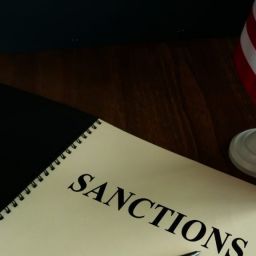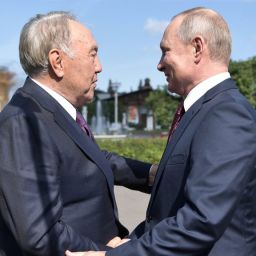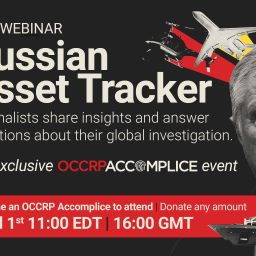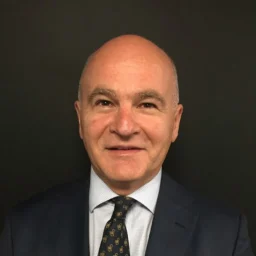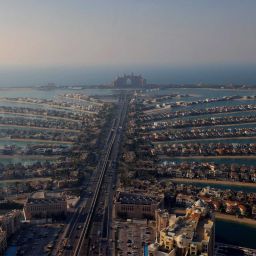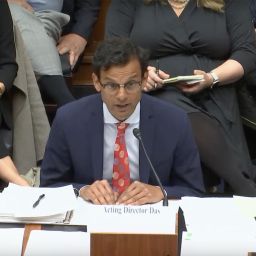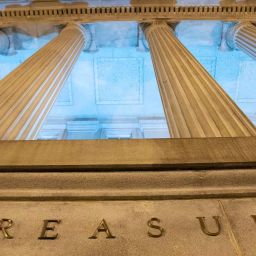During his rise as one of Russia’s richest oligarchs, Roman Abramovich poured much of his wealth into the west, amassing luxury homes, multimillion-dollar paintings, private jets and thoroughbreds.
Among his high-profile treasures: a sprawling Colorado mansion, a $700 million superyacht, a recently seized French Riviera estate — even London’s venerable Chelsea football club.
The 55-year-old power broker is among a cadre of billionaires who have been accused by U.S. experts of propping up the presidency of Vladimir Putin as the Russian leader wages a war in Ukraine now in its fourth month.
For years, the oligarch moved his money quietly through the U.S. financial system, even while bank fraud experts detected the hallmarks of money laundering: millions flowing from high-risk countries in large round dollar amounts and no obvious purpose for many of the payments.
The movement of those funds into the United States illustrates how easy it is for suspicious money to enter the country — billions belonging to criminal groups, Russian elites and corrupt foreign officials — despite internal warnings raised by the banks.
Secret government records reviewed by the Pittsburgh Post-Gazette showed that year after year U.S. banks shifted massive amounts of dollars without first taking basic steps such as determining where the suspicious funds were coming from.
As the Biden administration cracks down on oligarchs to punish Russia for its invasion of Ukraine, the failure by banks to shut out shadowy money threatens to undermine one of the president’s most public efforts to strike back at Russia for a brutal, unprovoked attack that has spread the fear of nuclear war across the globe.
In a unique position to fight money laundering and other crimes, banks are supposed to stay on alert and at times refuse to transfer money or even drop customers who they suspect may be breaking the law.
But the records show the banks — reaping fees from the enormous flow of money — not only transferred dollars for criminal groups and corrupt foreign officials but also for oligarchs who are supposed to be banned from the financial system from prior sanctions by the government.
In one case, Wells Fargo moved money for a Kazakhstan fugitive in 2015 even after an Interpol alert was issued for his arrest for allegedly helping to launder millions in public funds from his country.
In another, Standard Chartered took in hundreds of millions on behalf of a notorious Chinese gangster starting in 2013 despite the funds coming from a shell company with offices in Africa that did not appear to have any legitimate business purpose.
The transfers of money underscore the risks taken by banks in an era when criminal organizations are dependent on financial institutions to move their money and hide it.
Known as suspicious activity reports or SARs, the records — which are never disclosed to the public — are part of a Post-Gazette series into money laundering that began with an investigation into millions of dollars in the U.S. steel industry.
The newspaper reviewed roughly 2,000 such reports filed by the banks under a law that requires the institutions to report suspicious dollars to the government.
By themselves, the records — shared with the Post-Gazette by BuzzFeed News reporter Jason Leopold — are not evidence of a crime, and not everyone in the reports has been charged with offenses.
But the information turned up by the banks raised enough alarms that reports were sent to the U.S. Treasury’s Financial Crimes Enforcement Network, which investigates money laundering and other financial crimes.
With the recent push by the Biden administration to clamp down on people in Putin’s inner circle — including efforts to seize their yachts and mansions — the U.S. government sent an alert two months ago to banks to stay vigilant and stop oligarchs from moving their wealth into the country.
Despite a ban imposed on oligarch Arkady Rotenberg and his brother after the first invasion of Ukraine in 2014, banks still moved millions into the U.S. through shell companies on behalf of the pair, a Senate investigation found.
Since 2010, at least 15 major banks have been hit with regulatory fines and criminal investigations over money laundering and sanctions violations, raising questions about the banks’ ability to shut out the very people targeted by the Biden administration based on their past records.
One former regulator who spent decades investigating banks said he was concerned that too many financial institutions in their quest for profits show a “willful blindness” that permits suspicious dollars to flow.
“Bankers are making lots and lots of money off of this,” said Thomas Nollner, who spent 30 years with the Office of the Comptroller of the Currency. “…(I)t just happens year after year after year.”
Nearly 12 years ago, the Justice Department launched a high-profile campaign that created the first anti-kleptocracy unit in the agency to fight the rise of corrupt foreigners exploiting their nations and moving their ill-gotten gains into the U.S.
The goal at the time was to “deter corruption, hold offenders accountable and protect public resources,” said then Attorney General Eric Holder.
In the ensuing years, records show, hundreds of millions of dollars were steered through the banks by some of the very people who were supposed to be targeted by the new unit.
For years, banks moved money for Ilyas Khrapunov, then a Kazakhstan fugitive, even after he was accused in his country of helping his father, Viktor Khrapunov, to launder millions that government investigators said was stolen from the public treasury. In all, the elder Khrapunov was charged in a scheme to loot more than $300 million and was found guilty in absentia.
Bank investigators at Wells Fargo described a “suspicious and inexplicable” movement of money in 2013 and 2014; wire transfers for large round dollar amounts; and no clear source of funds, purpose of transactions or relationship between some of the parties. But the funds were moved anyway.
The son of Kazakhstan’s former energy minister, he and members of his family were accused by the government of buying multimillion-dollar Beverly Hills homes, leasing Rolls-Royces and Bentleys, and investing in a luxury hotel in New York City along with purchasing three units in Manhattan’s Trump SoHo with the money allegedly fleeced from their country.
Reports on the younger Khrapunov and others connected to him filed by Bank of New York Mellon in 2017 show a decade during which the bank moved more than $20 million on his behalf and others even after an Interpol notice was issued for his arrest in 2014 and a civil racketeering lawsuit was brought by the city of Almaty in Kazakhstan in federal court in California.
The Almaty government suit said the Khrapunovs found the United States to be ripe for money laundering, more so than another country they lived in —Switzerland.
Almaty lost the California case in 2015 before a federal appeals court on technical and jurisdictional grounds.
Ilyas Khrapunov denied the charges, saying he and his family were the victims of politics in their native country.
“Kazakh and Russian regimes use falsified evidence to initiate civil and criminal cases to pursue their political opponents,” the younger Khrapunov said in an email to the Post-Gazette. “I do think banking compliance is extremely important, but it is not always easy to distinguish between real and ‘politically motivated’ cases.”
And then there’s the case of Liu Han, a Chinese billionaire and a modern-day warlord who made a fortune in mining as well as mayhem and was fond of mink coats and luxury cars, according to published reports.
Again and again, Standard Chartered moved massive amounts of money for companies linked to him, later discovering some of the funds came in highly suspicious patterns from a shell company that listed an office in an apartment building in Tanzania.
In 2013, he was charged by the government with running an organized crime gang likened to the Mafia that murdered his political enemies, extorted, ran guns and operated an illegal gambling ring.
By the time the Chinese government executed the 49-year-old Liu in 2015 along with his brother and other associates, Standard Chartered Bank had already carried out most of the transfers for companies linked to the gang leader, records show. The total amount moved: more than $620 million.
In more than a dozen cases, the Post-Gazette found that banks filed multiple suspicious activity reports on the same subjects, but they never stopped moving their money even after suspecting laundering and other financial misconduct.
Martin Woods, a former financial watchdog for Wachovia Bank, said the repeated filing of reports without refusing the money or dropping the customer is a dangerous practice for financial institutions at a time when money laundering and fraud run rampant.
“If you have the ability to stop it, why would you not stop it?” said Mr. Woods, who exposed his bank more than a decade ago for taking in money for the Mexican drug cartels.
In response to questions from the Post-Gazette, Bank of New York Mellon and Wells Fargo declined comment.
Standard Chartered said it was unable by law to comment on suspicious activity reports.
Even after he was indicted by a U.S. grand jury in 2013 on charges of bribery, money laundering and racketeering, Dimytro Firtash, a Ukraine oligarch with close ties to the Russian government, was able to move millions for his company through Standard Chartered.
While transferring the money, the bank cited a host of concerns, including millions pouring in from high-risk countries and payments with no known purpose for the transactions.
Now a fugitive living in Vienna, the 57-year-old Mr. Firtash, who is accused of a scheme to bribe officials in India to land major mining contracts, has been fighting extradition to the United States. He has maintained in prior interviews that the charges are motivated by Ukrainian politics and that he never bribed anyone.
Although the rash of sanctions on oligarchs has forced banks to ban Kremlin insiders from the U.S. financial system, others close to Putin have remained free to move their wealth to America.
Three times, Bank of New York Mellon raised concerns and filed reports starting in 2009 on companies owned by Russian oligarch Vladimir Potanin, a 61-year-old billionaire who runs one of the largest nickel companies in the world.
The bank noted that millions of dollars were coming into the country from high-risk jurisdictions like the British Virgin Islands and from anonymous shell companies, but the bank kept moving the money for his businesses.
One of the richest men in Russia, Mr. Potanin, who has not been sanctioned by the United States, has long been close to the Russian president.
Another power broker whose ties run deep to the Kremlin is Abramovich, who frequently turned to U.S. banks to move his money — while the transfers raised red flags.
Once close enough to Putin that he reportedly influenced the Russian president’s earliest cabinet picks, Abramovich, who has not been sanctioned by the U.S., made his riches by snapping up lucrative oil assets in the wild years after the former Soviet Union broke apart, an era when corruption ran amok and fortunes were made through often opaque means.
At least three times starting in 2016, Deutsche Bank investigators filed reports after they were unable to find information to support the purpose of payments that flowed from companies controlled by the billionaire, with money that came from high-risk countries and in patterns that they said appeared to try to hide the source of the funds.
By early 2017, the bank had moved more than $500 million in less than a year for companies that he owned.
Abramovich, who has denied any criminal activity, has been hit with sanctions by the European Union, which recently seized his sprawling estate in the French Riviera, Chateau de la Croe, once the home of the Duke of Windsor.
Deutsche Bank did not address specific questions about Abramovich’s transactions, saying that it is legally barred from commenting.
Dylan Riddle, a Deutsche spokesman, said, “We condemn the Russian invasion of Ukraine in the strongest possible terms and support Western governments in defending our democracy and freedom —including of course, abiding by all sanctions.”
Government officials in the U.S. and Europe say the seizure of oligarch properties and banning them from the American banking system may force them to pressure Putin to change his tactics.
But several experts interviewed by the Post-Gazette doubt whether the U.S. financial institutions would ever completely sever their ties with billionaires despite alarms over the source of their wealth. The reasons: the fees and new business that comes with moving money.
“Some banks file SAR after SAR on the same account, suspecting money laundering, corruption or worse, but never close it down,” said Elise Bean, who spent years with the Senate Permanent Subcommittee on Investigations and directed probes into money laundering, offshore tax havens and shell companies.
“I don’t know if it’s greed or indifference, but the negative impact on the U.S. financial system is the same. Bank regulators could require financial institutions to close accounts with multiple SARs but have yet to take that step.”
But without the buy-in by the banks, there is little to stop the next generation of oligarchs, kleptocrats, narco-traffickers and others from exploiting the U.S. financial system.
While money is moved through real estate, ultra-luxury goods like superyachts, artwork and cryptocurrency, banks are still at the center of the money-laundering universe.
In order to disrupt the flow of dirty dollars, said Raymond Baker, a financial crimes scholar, the government has to rely on U.S. financial institutions to make hard decisions.
“So the banking system is in the middle of all of this and needs to do a far, far better job of curtailing illicit money and could do so if the attitude was, ‘We don’t want the dirty money.’ ” said Mr. Baker, who founded Global Financial Integrity, a Washington, D.C., think tank that tracks and writes about political corruption.
The estimated amount that is laundered each year: up to $300 billion in the U.S. alone, according to the Treasury Department.
Congress has turned to two potential weapons to take on the flood of suspicious dollars in the U.S., but even those reforms will not be enough, say experts.
One of them is the Corporate Transparency Act, which is meant to crack down on anonymously owned shell companies by mandating that beneficial owners be identified, a key cog in the money-laundering machine.
But even that reform passed last year has its limits, including exemptions for companies that apply with more than $5 million in sales and 20 employees —a loophole that would allow shell companies owned by oligarchs to run rampant.
Another proposed reform, the Enablers Act, targets the middlemen who help money launderers —the lawyers, public relations firms, accountants, art dealers, real estate and investment advisers, and others. But that proposed plan has yet to pass.
In cases where banks are caught blatantly violating the law, experts say the government needs to get tougher.
Some support stiff penalties and even jail time for bank executives who move dirty money and view any fines as merely a cost of doing business.
“The only way you can change that is to increase the penalties and to put people in prison,” Mr. Baker, the financial crimes scholar, said.
Robert Mazur, a former federal agent and money laundering expert who infiltrated the Medellin and Cali drug cartels as a money launderer for five years, said without the government imposing harsh criminal penalties, it will never be able to force banks to change their behavior.
“The problem that you face is you’re holding back the biggest bomb you have in this war, and that biggest bomb is an aggressive law enforcement community going after the bad guys,” said Mr. Mazur.
“Believe me,” he said, “if you put enough bankers behind bars, it will start to register for them.”
Original source of article: www.kansascity.com

